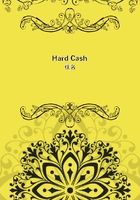
第229章
"Why, I was a good ways off, but I saw he was a tall one.""Six feet?""Full that."
"Give you his name?'
"No: I didn't speak to him: it was Andrew. Andrew says he asked if there was a fireman called Dodd: so Andrew said you had left; then the swell asked where you lived, and Andrew couldn't tell him any more than it was in Pembroke Street. So I told him, says I, 'Why couldn't you call me? It is number sixty-six,' says I. 'Oh, he is coming back,' says Andrew.
However, I thought I'd come and tell you." (And so get a word with Sarah, you sly dog.)Edward thanked him, and put on his hat directly, for he could not disguise from himself that this visitor might be Alfred Hardie. Indeed, what more likely?
Messrs. Hurd and Peterson always tried to stay one another out whenever they met at 66, Pembroke Street. However, to make sure of not leaving Julia alone, Edward went in and asked them both to luncheon, at which time he said he should be back.
As he walked rapidly to the station he grew more and more convinced that it was Alfred Hardie. And his reflections ran like this. "What a headpiece mamma has! But it did not strike her he would come to me first.
Yet how plain that looks now: for of course I'm the duffer's only clue to Julia. These madmen are no fools, though. And how quiet he was that night! And he made papa go down the ladder first: that was the old Alfred Hardie; he was always generous: vain, overhearing, saucy, but noble with it all. I liked him: he was a man that showed you his worst, and let you find his best out by degrees. He hated to be beat: but that's no crime.
He was a beautiful oar, and handled his mawleys uncommon; he sparred with all the prizefighters that came to Oxford, and took punishment better than you would think; and a wonderful quick hitter; Alec Reed owned that.
Poor Taff Hardie! And when I think that God has overthrown his powerful mind, and left me mine, such as it is! But the worst is my having gone on calling him 'the Wretch' all this time: and nothing too bad for him. Iought to be ashamed of myself. It grieves me very much. 'When found make a note on;' never judge a fellow behind his back again.
Arrived at the station, he inquired whether his friend had called again, and was answered in the negative. He waited a few minutes, and then, with the superintendent's permission, wrote a note to Alfred, inviting him to dine at Simpson's at six, and left it with the fireman. This done, he was about to return home, when another thought struck him. He got a messenger, and sent off a single line to Dr. Wolf, to tell him Alfred Hardie would be at Simpson's at seven o clock.
But, when the messenger was gone, he regretted what he had done. He had done it for Alfred's good; but still it was treason. He felt unhappy, and wended his way homeward disconsolately, realising more and more that he had not brains for the difficulties imposed upon him.
On entering Pembroke Street he heard a buzz. He looked up, and saw a considerable crowd collected in a semicircle. "Why that is near our house," he said, and quickened his steps.
When he got near he saw that all the people's eyes were bent on No. 66.
He dashed into the crowd. "What on earth is the matter?" he cried.
"The matter? Plenty's the matter, young man," cried one.
"Murder's the matter," said another.
At that he turned pale as death. An intelligent man saw his violent agitation, and asked him hurriedly if he belonged to the house.
"Yes. For mercy's sake, what is it?"
"Make way there!" shouted the man. "He belongs. Sir, a madman has broke loose and got into your house. And I'm sorry to say he has just killed two men.""With a pistol," cried several voices, speaking together.